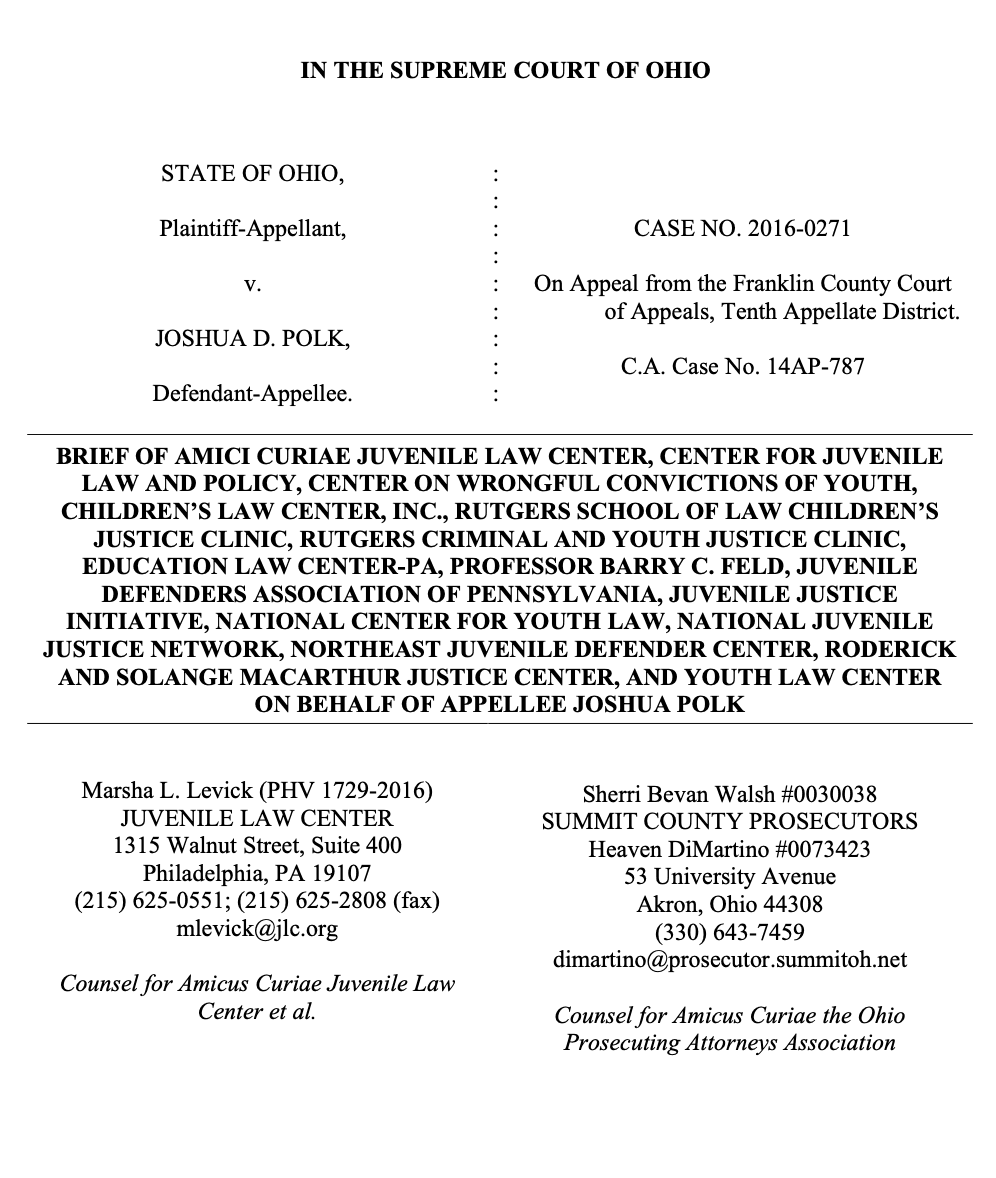
Summary of Argument
Amici curiae write to ensure the Supreme Court’s decree that “students do not ‘shed their Constitutional rights . . . at the schoolhouse gate,’” Tinker v. Des Moines Indep. Cmty. Sch. Dist., 393 U.S. 503, 506 (1969), continues to have meaning in Ohio. It is through the educational system that our children learn the moral, social and civic values that drive the interaction between citizens and government. While the United States Supreme Court has recognized that children’s constitutional rights may in some instances be articulated differently from adult rights in comparable circumstances, no decision from the Supreme Court or this Court suggests that school children forfeit their rights to our most fundamental constitutional guarantees merely by crossing the school threshold.
Yet, the State and its Amici seek through this case to drastically circumscribe children’s Fourth Amendment rights by barring application of the only remedy the Supreme Court has crafted to prevent Fourth Amendment violations—the exclusionary rule—for any illegal search conducted by school officials. Such a bold and effectively unprecedented decision would render the Fourth Amendment meaningless for Ohio’s school children. No such sweeping erosion of children’s Fourth Amendment rights is justified.
Amici reject all three propositions of law proposed by the State. For the first proposition, Amici support and incorporate the argument of Appellee Joshua Polk.
On the second proposition of law, Amici write to underscore the importance of the exclusionary rule, and to stress that it applies to illegal searches conducted by school officials. The State’s argument that school officials are not deterred by the threat of the exclusionary rule because they are completely divorced from law enforcement does not comport with contemporary school culture, in which police and “school resource officers” are increasingly present on school campuses and schools refer hundreds of thousands of students to law enforcement each year.
With respect to the third proposition of law, Amici argue that the State overstates the cost- benefit analysis courts must apply in determining whether to apply the exclusionary rule. In cases like this one, in which a state official’s actions are sufficiently culpable, the deterrent effect is strong and there is no need to conduct a deeper balancing test. Moreover, eliminating the exclusionary rule in school search cases would undermine those students’ respect for the Constitution and the civic responsibilities schools are supposed to engender, while contributing to the “school-to-prison-pipeline” epidemic plaguing our country—all this without any demonstrable improvement in student safety.
The trial court and Court of Appeals correctly rejected the State’s dangerous call to bar the exclusionary rule in school search cases. We urge this Court to do the same.